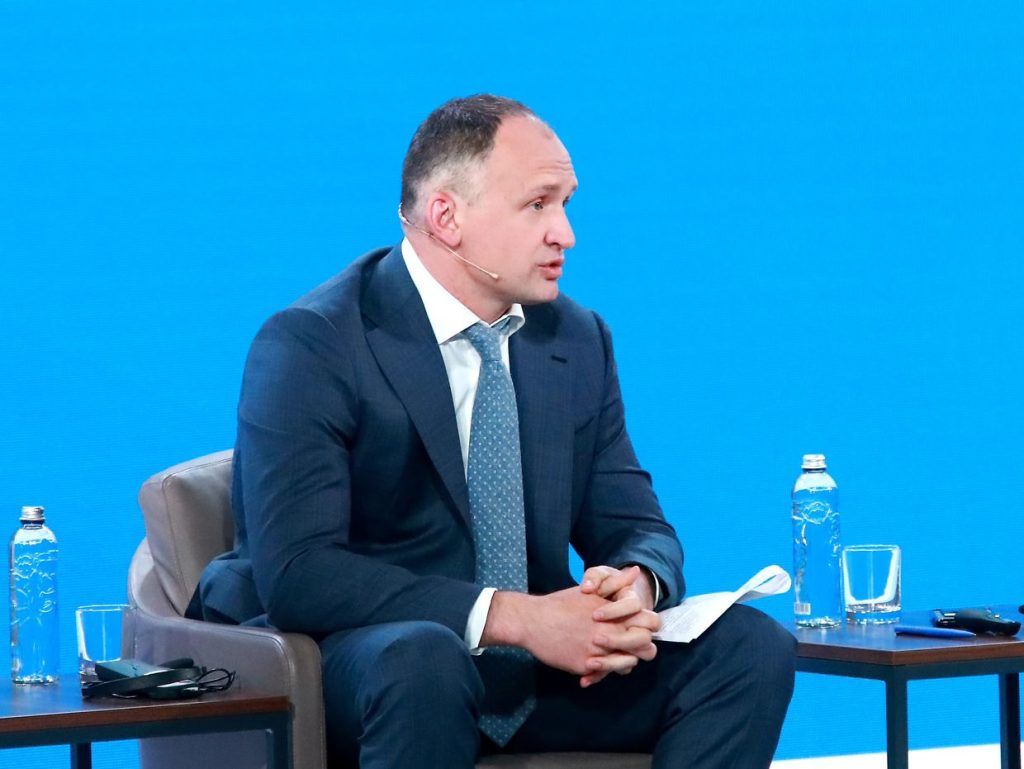President Zelensky made a shocking revelation on Aug. 27, accusing his deputy head Oleh Tatarov and SBU chief Vasyl Maliuk of killing Chechens in Kyiv, possibly during the early stages of Russia’s invasion of Ukraine. Zelensky made these accusations in response to a journalist’s question about the effectiveness of his team. Despite the serious nature of these allegations, the president did not provide further details but claimed that Ukrainian journalists had been informed about this “off the record” and that the U.S. is also aware of it. Tatarov, who is already facing bribery charges, is known to be a controversial figure in Zelensky’s administration. Interestingly, Zelensky has chosen not to suspend or fire Tatarov despite the controversies surrounding him.
In a separate incident, during the initial phases of Russia’s full-scale invasion, a group of Chechen fighters aligned with Moscow reportedly attempted to infiltrate Kyiv to assassinate Zelensky. Thankfully, this plan was foiled before any harm could be done. It remains unclear whether these two cases are connected in any way, but the mention of Chechens in both instances raises questions about potential links. Zelensky’s revelations shed light on the dangers faced by Ukraine and its leaders, highlighting the volatile and precarious nature of the ongoing conflict.
At the Ukraine 2024 Independence forum in Kyiv, President Zelensky announced that he would present the United States with a victory plan in September. He described the ongoing Kursk incursion as one part of this comprehensive strategy to secure Ukraine’s independence and sovereignty. Zelensky’s proactive approach in seeking support from international allies demonstrates his commitment to fighting for Ukraine’s interests and safeguarding the country against external threats. By outlining a victory plan, he aims to address the challenges posed by Russia’s aggression and establish a path towards a secure and prosperous future for Ukraine.
The accusations made by Zelensky against his own officials, particularly Tatarov and Maliuk, reveal the internal challenges and complexities within the Ukrainian government. As the country continues to navigate the impacts of the conflict with Russia, maintaining trust and integrity within the administration becomes crucial for effective governance. The president’s decision to address these issues publicly, albeit in a cryptic manner, underscores the need for transparency and accountability in times of crisis. By bringing attention to alleged misconduct within his team, Zelensky signals his commitment to upholding ethical standards and ensuring that those responsible are held accountable.
The thwarted assassination plot involving Chechen fighters underscores the ongoing threats faced by Ukrainian officials, including President Zelensky. The fact that individuals linked to the conflict in Chechnya targeted the president highlights the complex web of geopolitical tensions and regional dynamics at play in the region. It also underscores the need for heightened security measures and vigilance to protect key figures in the Ukrainian government. Zelensky’s handling of such security challenges will be essential in safeguarding the country’s stability and resilience in the face of external threats.
Overall, President Zelensky’s actions and statements reflect the urgency and gravity of the situation in Ukraine amidst the ongoing conflict with Russia. By openly discussing sensitive issues and outlining plans for victory, he demonstrates leadership and determination in the face of adversity. The revelations about alleged misconduct within his administration and the attempted assassination plot serve as a stark reminder of the risks and challenges inherent in Ukraine’s struggle for independence. As the country continues to resist external aggression and assert its sovereignty, Zelensky’s leadership will be crucial in navigating the complex geopolitical landscape and securing a better future for Ukraine and its citizens.














